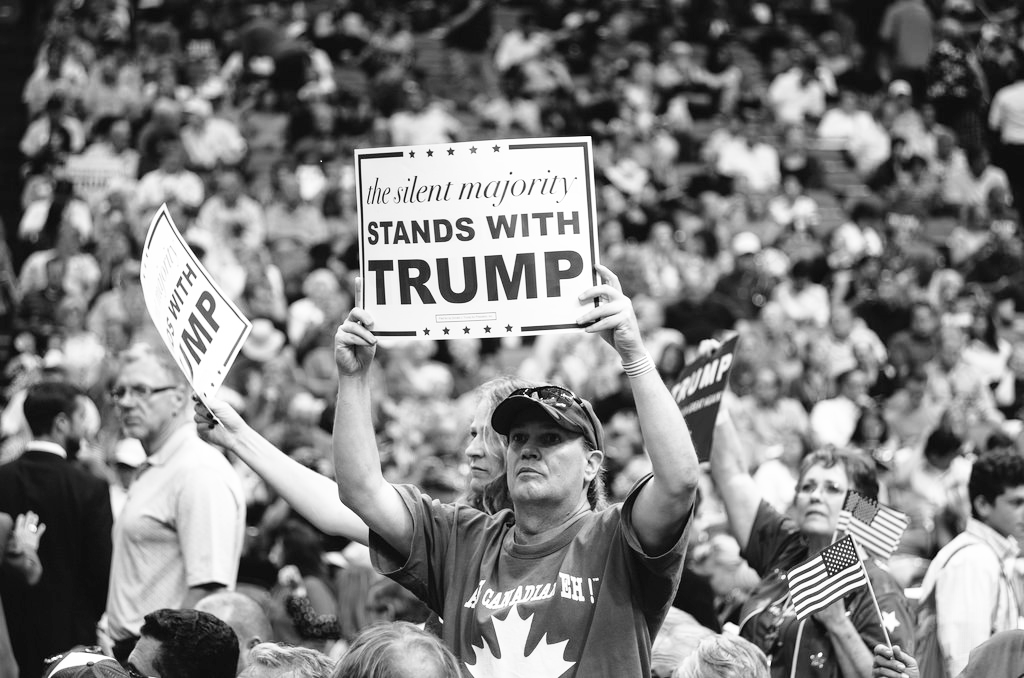
The pundits were wrong. The pollsters were definitely wrong. Remember Nate Silver’s infallible one chance in three? Wrong. Or Larry Sabato’s 322 electoral college victory for Clinton? Wrong. They were all wrong: the media, the analysts, and most importantly, the ever so smug political elite.
As the election kicked off with meaningful statistics in the 7 p.m. hour, Florida began to walk a tightrope, drawing immediate comparisons to the nightmare of 2000. Virginia played its usual game of an early Republican lead, slowly dwindling throughout the night. North Carolina held out as long as it could, cautiously making its case for a Clinton win. But in a matter of hours, the rising tide of populism swept the nation, and engulfed the egos and swagger of elitists everywhere.
In the mystical land of the Midwest, where people live paycheck to paycheck and inhale the rust of abandoned manufacturing, Trump rallied the silent majority. For decades, media pundits have debated the reality of these lower-middle class voters who seem to hide in the electoral shadows, but now the evidence is irrefutable. Upon announcing Trump victories in North Carolina and Florida, the media followed up by revealing a major Senate win for Ron Johnson in Wisconsin, showing signs of an unexpected Trump performance in the Midwest, perhaps driven by this missing demographic.This idea was quickly validated with an unexpected win Wisconsin, followed by a bolstering victory in Iowa. The scene seemed to reflect a Rocky Balboa-like ending, where the underdog bides his time against the heavy favorite, only to unveil a relentless fury of punches in the final round, soaring to a glorious victory. This comeback was fueled by the current dilapidated state of the nation, and the degraded condition of the forgotten people’s prosperity.
A Reuters/Ipsos exit poll showed three in four people believe the economy is rigged for the rich. A Real Clear Politics average showed 62 percent of people believe the country is headed in the wrong direction. Exit polls across the nation solidified the economy as Americans’ number one concern, above immigration and even terrorism. At its crux, this election was a conscious juxtaposition of the insiders and the outsiders; the elites and those left behind. The Trump campaign seemed to identify this matchup and traced it back to its source: the Midwest. In the final days of the campaign, on-lookers chuckled as Trump made frequent appearances in places like Michigan, Wisconsin, and Minnesota.
For months, Trump’s juvenile “Brexit” comparison seemed no more than a wishful hyperbole. In the wee hours of this morning, final numbers are not certain, making in-depth ethnicity and gender analysis difficult to manufacture. But what difference, at this point, does it make? Donald Trump won, and it’s because he spoke the language of everyday Americans: the language of vanishing jobs, diminishing wages, and an increasingly bleak future. His admittedly offensive comments about women, alongside dozens of other unconventional political gaffes, proved irrelevant. In fact, they may have worked as a curious supplement to his folksy message, allowing him to resonate with his “basket of deplorables.”
There was an existing theory that a large faction of Americans have been neglected by increasingly liberal policies, and that this hypothetical faction, should they find a candidate which seemed to fight for their dying cause, could come out in droves and change the entire makeup of a general election. This theory was right. The polls rejected its existence, but the polling industry may have just suffered a fatal implosion. The silent majority is real. And the silent majority just changed America.
Mr. Bruno is a senior studying politics and business.

